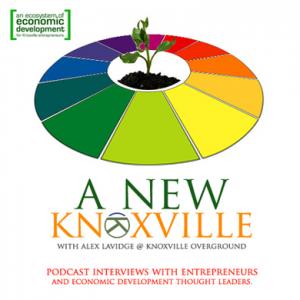
Friday Jan 09, 2009
Episode Two - Learning from Santa Cruz, CA and nextspace.us
In this podcast, Alex Lavidge interviews economic development thought leaders Jeremy Neuner (co-founder, CEO of www.nextspace.us, a for-profit coworking facility), Peter Koht (Economic Development Coordinator for City of Santa Cruz, www.cruzbusiness.com), and Sean Patrick Tario (Co-organizer, Santa Cruz Geeks, www.santacruzgeeks.com). The interview begins with a dialogue with Jeremy Neuner who as the CEO of Nextspace celebrates the company’s 101-day anniversary and is quickly nearing full occupancy (currently at 78 members) for the 11,000 sq. ft. coworking and community center. One of the many features that makes Nextspace unique is combining a café with the coworking space and providing membership access plans for each. Jeremy Neuner quotes studying case studies for NextSpace that included but weren’t limited to Citizen Space of San Francisco (//citizenspace.us/), LaunchPad Austin (//blog.launchpadcoworking.com/), Conjunctured (//conjunctured.com/), and others. In terms of a screening process for applications, Jeremy comments, “we don’t have any true criteria [for tenants] … people are self-selecting for our space.” With regards to the future of coworking, Alex comments on the “coworking 1.0, 2.0, 3.0” analogy, and asks the guests what the future holds. Sean Tario mentions helping people take an idea and finding a way to implement it is a feature that will be offered in future coworking spaces. Jeremy followed up with a reference to the book Crowdsourcing, by Jeff Howe, (//crowdsourcing.typepad.com/), and comments on how a lot of commercial real estate is still behind the times and not listening to their customers – with a lot of their future development not meeting the needs of the future workforce. As for the creative ecosystem of Santa Cruz, Peter Koht comments on a few of the components of the Santa Cruz community that attract and retain talent: for instance there are two research universities within 40 minutes, the median age is 35, and there’s “a stunning quality of life.” “We have the greenbelt, the ocean, the mountains,” Koht also commented, “[along with access to Silicon Valley].” As for a place to do green research, “it’s a great place for green companies to thrive – because we’ve been living many of the green ideals for 30 years.” Jeremy Neuner comments on the importance of Santa Cruz Ne[x]t, a community-building organization for young professionals between 25-45 (//www.santacruznext.org/). Sean follows up with the importance of identifying generational differences, and catering to all of them so that a diversity of opinion is heard in all public forums, mentioning that young professionals have “less baggage” and are more open to innovation, new ideas, and being tolerant to a variety of perspectives. Everyone agrees that another essential component is celebrating the history of entrepreneurship and innovation. Santa Cruz has their story and history published on //cruzbusiness.com. Santa Cruz Geeks is also a catalyst for several social endeavors – from BarCamps to other events. Santa Cruz New Tech Alliance is also a model that seems to be gaining in popularity that showcases success stories of successful startups in the technology sector (//www.meetup.com/newtech-86/). In the conversation, a reference to the book Slow Money, by author Woody Tasch (also the chair of Investors Circle), which advocates the importance of investing locally in sustainable and ethical enterprises. Something that all the guests emphasizes was the importance of developing relationships with local wealth and encouraging them to invest locally, as well as bringing in additional thought leaders and having even more collaboration and dialogue about the future of their local economy. Additionally, as for the future of Santa Cruz, Sean comments, “there’s a focus to create more jobs in Santa Cruz” so that tech professionals don’t have to commute all the way up to Silicon Valley to work. Peter ended on the note, “We need to just focus on attracting more capital and more discussion.” And Jeremy ended on the point, “and remembering to think how we can tell the story about Santa Cruz … it’s an amazing story, we need to tell it to ourselves and we need to tell it to the world.” Santa Cruz has some interesting overlaps with Knoxville that we can learn from that Alex will be addressing in his upcoming book A New Knoxville.
Comments (0)
To leave or reply to comments, please download free Podbean or
No Comments
To leave or reply to comments,
please download free Podbean App.